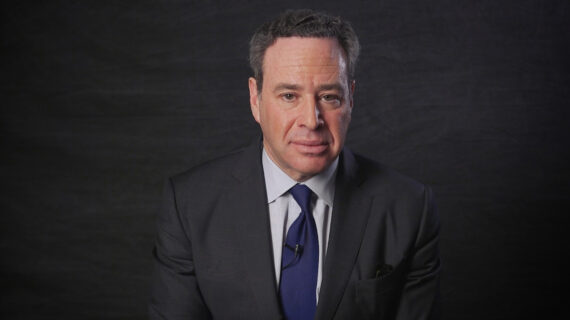Conservative leader Pierre Poilievre has shown a rare skill at illuminating complex issues and spotting emerging fractures within the fabric of Canadian society.
His message, that “Canada is broken” and that gatekeepers are preventing it from being fixed, has clearly resonated with Canadians and highlighted areas in need of significant reform.
But while American conservatives have travelled all the way from Ronald Reagan’s “morning in America” to Donald Trump’s “American carnage,” the challenge for Poilievre will be not following that path and constructing a vibrant and optimistic vision for Canada’s future.
This is a turning point for Poilievre and it calls for optimistic conservatism.
At its core, optimistic conservatism should be understood as an affirmation of human agency. It’s anti-fatalistic. Progress doesn’t depend on our present circumstances but our capacity to envision and strive for a better future. The promise of possibilities, the canvas of a world not yet materialized, fuels humanity’s loftiest ambitions.
Optimism and the recognition of human agency serve as the twin pillars of flourishing societies. When we nurture and harness the potential of each individual, we can create the collective conditions for growth and prosperity. The positive psychology can actually manifest in improved economic and social outcomes. Societal decline, by contrast, often mirrors a loss of this optimism, surrendering the belief in the power of human action and spurring a descent into negative-sum conflict.
We’re starting to see some of this thinking creep into Canadian life. Growing concerns about stagnant living standards, the housing crisis, and other contemporary challenges have led to a looming pessimism that’s reflected in polling which tells us that a lot of Canadians think the present is worse than the past and the future is even more bleak.
Poilievre is right to seize on these sentiments. It’s a key reason for instance that polling indicates he’s popular among younger Canadians who are most affected by these deteriorating trends. Yet as much as this cohort is searching for the recognition of its challenges, it ultimately wants more: a message and vision of a better future.
Herein lies the case for optimistic conservatism. It advocates the view that we are not merely passive actors buffeted by life’s circumstances but active participants shaping our destiny. This philosophy fosters creativity, innovation, and resilience, encouraging a proactive response to adversities. Optimistic conservatism, in short, embodies Charles Krauthammer’s famous adage: “decline is a choice.”
Far from being a mere philosophical discourse, it is a pragmatic approach to policy-making. Take the existential threat of climate change, a reality we can no longer deny or sideline. While the danger to our planet is real, surrendering to pessimism is not the answer. Instead, it is through the application of human ingenuity that we can ultimately solve such a problem. The proposition that we can harness nuclear energy to tackle global warming is a testament to this optimistic outlook, a beacon of hope that we are not defenseless in the face of looming adversity.
This outlook is contrasted with the rising tide of pessimism, particularly among young liberals, that poses a substantial challenge to a cultural ethos of agency and optimism. While their activist zeal is commendable, their perspectives often stumble into a quagmire of negativity and zero-sum thinking, which is evident in their discourses surrounding diversity, equity, and inclusion (DEI) and wealth redistribution.
In their pursuit of addressing societal inequities, many left-wing activists advocate an inherently pessimistic view of value, perceiving it as a finite resource to be merely shuffled around, not multiplied or expanded. This perspective creates a societal deadlock, obsessively focusing on the question of need without entertaining the prospect of want. Put differently: it reflects a scarcity mentality rather than an abundance agenda.
In contrast, optimistic conservatism posits that value creation is not a zero-sum game. It stresses the capacity for innovation and wealth creation, fostering new value and opening new horizons of possibility. It envisions a future where individuals, through their unique talents and hard work, can contribute to societal progress and fulfil their own aspirations.
This vision doesn’t ignore systemic issues or advocate unbridled individualism at the cost of community cohesion. Rather, optimistic conservatism seeks to strike a balance between individual agency and communal responsibility, underscoring the empowerment of individuals within the framework of a harmonious society.
Empirical evidence backs this philosophy, illustrating a positive correlation between optimism and improved mental health, productivity, and problem-solving abilities. The prevailing mental health crisis among liberal youth could be significantly mitigated by fostering this optimistic outlook, steering them away from zero-sum thinking towards a more constructive, value-creation approach.
So, what does an optimistic future look like? It envisions thriving economies propelled by innovation and wealth creation, societies bound by shared values and mutual respect, and individuals empowered to carve their destinies. It anticipates a future brimming with hope, prosperity, and fulfillment. It will be a testament to the power of human agency.
To manifest this vision, optimism must come to be reflected in government and public policy. This means using positive rhetoric in political discourse, cultivating an educational ethos that encourages a growth mindset, and supporting entrepreneurial ventures that create new value.
Optimistic conservatism draws inspiration from a philosophical bedrock that values freedom, responsibility, and personal growth. These are ideas and values that are much needed today. Poilievre may be uniquely positioned to bring expression to them. It would good for him and good for the country.




